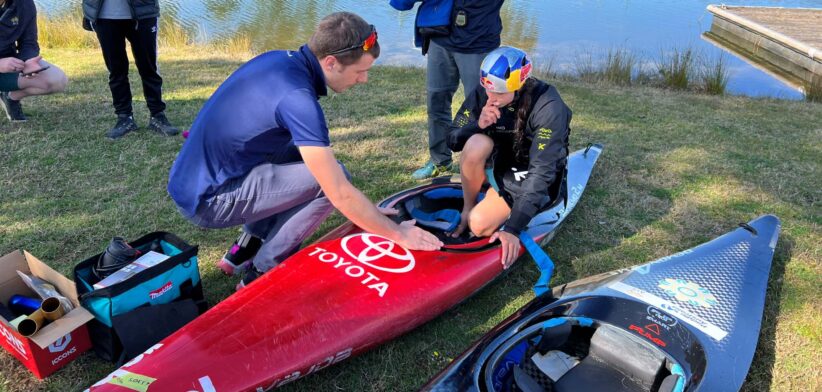From 3D-printed canoe knee cups and bicycle aluminium stem adapters to high-tech cameras and software which provide real-time data to swimmers, the Australian athletes in Paris are taking advantage of the latest in sporting tech.
Through the Australian Institute of Sports (AIS) Engineering team the Aussies have had access to custom-built technology and performance analysis throughout the Games and its build-up.
With the Paris Olympic Games well underway, the AIS showcased some of the behind-the-scenes work they undertook with our team.
In a statement, they called out the work they did with Paddle Australia to develop custom pieces for gold medallist Jessica Fox’s boats, including a 3D-printed knee cup for her canoe with a novel installation system and lightweight aluminium alloy footpegs for her kayak.
During training, the AIS engineers also used custom electronic glasses that limited vision to train the brain to remember recent optics.
The AIS said the medal-hungry Aussie Dolphins swim squad had a secret weapon in Sparta-2, a swimming analysis system that used a cutting-edge 4K camera and custom software to provide real-time data and track strokes in the pool.
For the cyclists, AIS Engineering developed customised 3D-printed aluminium stem adapters to achieve optimised handlebar extension geometry for aerodynamic drag reduction and Australia’s sailing coaches worked with the AIS to develop analytics platforms to gain performance feedback ahead of the Games.
The AIS said athletics athletes had also been using technology to improve performance, particularly javelin throwers and coaches who utilised the AIS-developed app ThrowCoach, which captured the javelin throw in slow motion with reference markers, including the angle of trajectory, for performance analysis.
It said the support was ongoing, with performance analysts from across the nation currently working around the clock at the AIS, collecting video and analysing footage to provide critical insights to our teams in Paris.








